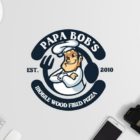Meta Box, one of the most popular WordPress custom fields frameworks, has released a new extension for creating custom Gutenberg blocks using only PHP. MB Blocks gives developers the ability to build blocks with various settings, using a similar syntax as creating a meta box, without having to know React, Webpack, or Babel.
MB Blocks inherits many settings and field types from Meta Box to speed up development. Those who are experienced using Meta Box should be able to create a new Gutenberg block in under 10 minutes.
Tran Ngoc Tuan Anh created the Meta Box framework in 2010, launched on WordPress.org in 2011, and began releasing commercial extensions in 2014. The plugin’s user base has grown to more than 400,000 active installs and Tran now leads a three-person team, including two developers and one marketer.
“The revenue is not as good as other businesses, but it’s enough for us to run a small team,” Tran said. Learning React was new for his developers and it took them several months to get familiar with the framework before being able to create the MB Blocks extension.
Following in the footsteps of Advanced Custom Fields (ACF), which offers ACF blocks as part of its Pro version, Meta Box’s PHP-only block creation solution is only available as a commercial extension.
“The MB Blocks extension is our strategy to attract users to Meta Box,” Tran said. “Since Gutenberg is becoming a huge thing, people really need a way to work with it. With this extension, we hope to bring more premium users to Meta Box.”
With more than one million active installs, ACF is the market leader and Meta Box’s main competitor, but Tran said his team is also keeping an eye on other plugins like Toolset, CMB2 (200,000+ installs), and Pods (80,000+ installs). He identified flexibility as Meta Box’s chief differentiator, since it is a code-based solution that he believes gives developers a greater level of customization in creating custom fields.
“The main difference between Meta Box and ACF is Meta Box is more developer-focused. It’s mainly code-based, e.g. you define meta boxes and fields with code (it has the UI as a premium extension but code is still the main part),” Tran said. “Meta Box has some extra things like supporting custom table storage, making frontend forms, advanced conditional logic, and building user profiles on the frontend.”
Tran said he is satisfied with Gutenberg’s support for meta boxes at the moment but would like to see it improved.
“The way it works is kind of a ‘fake’ submission for post data via ajax,” he said. “Sometimes that makes users have to refresh the page to see the updated content. I mean for complex data, it still doesn’t have a good way to refresh the meta boxes when a post is saved. I wish there was was a way to do that.”
This may not be a priority for the Gutenberg team, as the ideal is for meta boxes to be converted to blocks wherever possible to maintain a unified editing interface. The reality is that many plugins are still not block-enabled, which is why the WordPress Plugin Directory has a section devoted to promoting those that are.
“Many users still need custom meta boxes because of two reasons: building custom Gutenberg blocks is not easy enough, and a lot of plugins still require meta boxes to work,” Tran said.
The availability of PHP-based solutions for creating custom Gutenberg blocks has been an important development for those who have been slow to take the deep dive into JavaScript and React. Tran said the feedback he has received from his userbase indicates that many have not prioritized gaining the skills necessary to become proficient at custom Gutenberg development.
“Our main users are web creators who build websites on a daily basis,” Tran said. “Many of them have built a solid foundation for their work to speed up the workflow. Things such as a page builder, a custom fields framework, a powerful theme, are their daily tools. Putting Gutenberg into this toolset requires a lot of time learning and mastering it. Sometimes it’s not feasible, especially when Gutenberg is not powerful enough to build websites. Most of them still use a page builder to build websites, while they keep testing Gutenberg to see what’s new.”
Tran said most of his customers are using page builders like Beaver Builder or Elementor. Some give access to their clients and others do not. This is where they often look to plugins like Meta Box to help them build settings for their websites.
With MB Blocks released today, the Meta Box team is moving forward on its roadmap, working on integrations with other plugins like WP All Import, and improving the Meta Box Builder to support creating relationships and settings pages with a UI.





